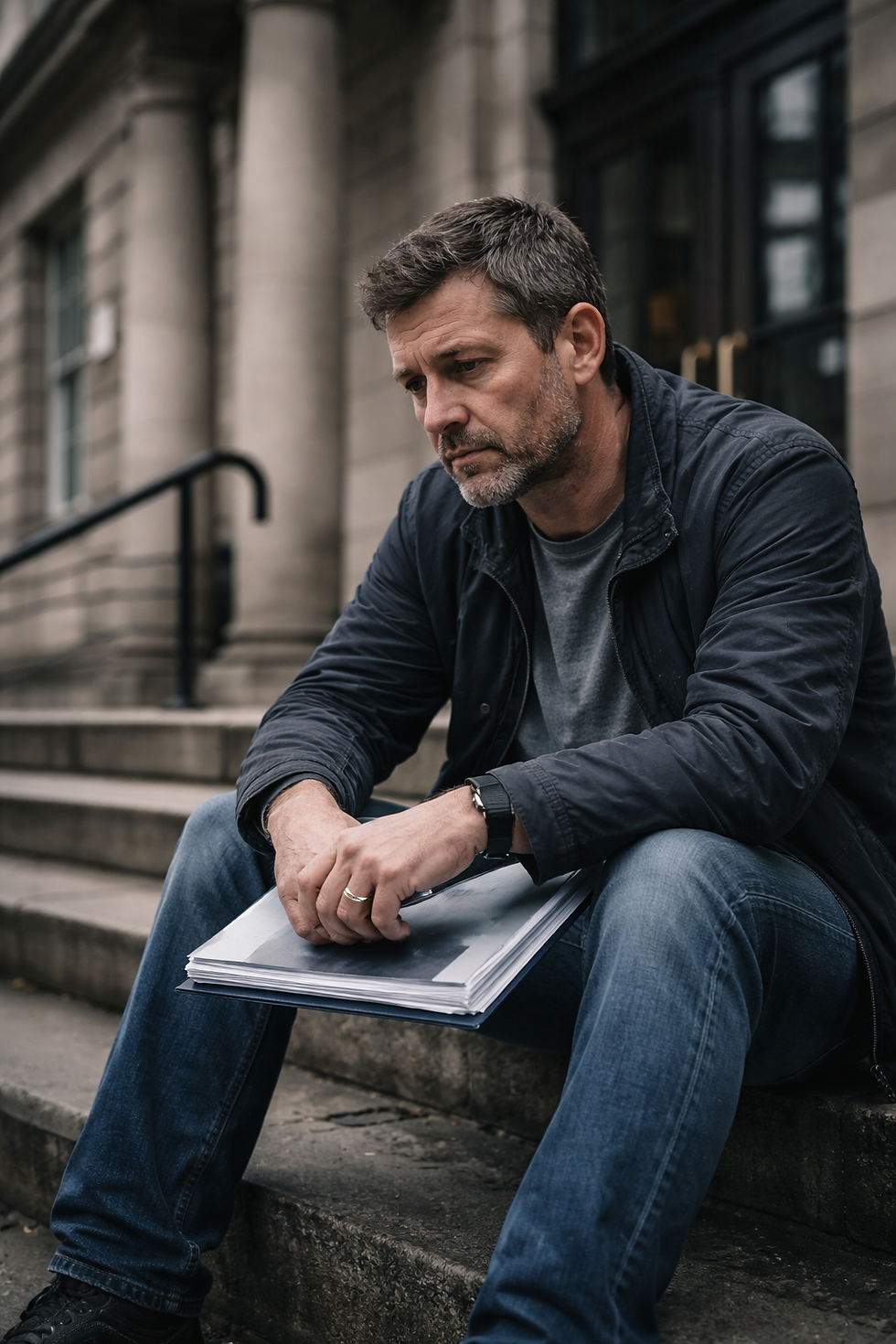Your Child Isn’t Your Therapist: Why Emotional Burdening Harms Children
- Falsely Accused Network

- Nov 5, 2025
- 3 min read
Written by Michael Thompson, Founder and Director of the Falsely Accused Network
When adults go through separation, stress, conflict, or legal challenges, emotions can run high.
In those moments, many parents unintentionally turn to their children for emotional comfort, advice, or validation.
This isn’t always malicious. Often, it comes from pain, loneliness or feeling unheard.
But children are not emotional caretakers, and asking them to play that role can cause long-term psychological harm.
In safeguarding and psychology, this behaviour is often called:
Parentification (the child is made to act like the parent)
Emotional burdening (the child is used for emotional support)
Role reversal (child takes on adult emotional roles)

---
What Does Emotional Parentification Look Like?
Examples include:
Telling a child about adult court disputes or relationship problems
Venting to them about an ex-partner
Asking them to reassure you emotionally (“I don’t know what I’d do without you”)
Using them as a messenger between adults
Speaking badly about the other parent to gain loyalty or comfort
Making a child feel responsible for your mood or wellbeing
It can be subtle. Often, it doesn’t look like “abuse” — but the impact is real.
---
Why It Harms Children
Evidence from child-development research shows that emotional burdening can affect:
Emotional development
Self-esteem
Attachment security
Ability to set healthy boundaries
Future relationships
For example, the UK NSPCC states that children should be protected from “emotional harm including being exposed to adult conflict or expectations that place pressure on them” (NSPCC Child Protection Standards, last updated 2024).
The NHS also recognises that prolonged emotional burden and adult conflict exposure can contribute to anxiety, depression, and trauma-related symptoms in children (NHS Mental Health for Children and Young People guidance, 2023).
Children who are placed in the role of emotional carers often become adults who:
Struggle to say no
Feel responsible for others’ happiness
Have difficulty trusting relationships
Experience guilt when prioritising themselves
Childhood is a time to feel safe, supported, and free to develop, not to carry adult pain.
---
Children Going Through Family Breakdown Are Especially Vulnerable
In high-conflict separations, especially those involving allegations or court proceedings, children are at heightened risk of being emotionally burdened.
Official guidance reinforces this.
The Family Justice Council emphasises that exposing children to adult conflict or asking them to take sides can be emotionally harmful (FJC Guidance on Children and the Family Court, 2023).
Whether the allegation is true, false, or disputed, children must remain protected, informed appropriately, and shielded from adult stress wherever possible.
---
Healthy Alternatives: What Parents Can Do Instead
✅ Seek support from adults, not children
Examples include:
Counsellors or therapists
Peer support groups
Trusted friends or family
Faith/community leaders (where appropriate)
✅ Keep adult conversations private
Never speak negatively about the other parent or court case in front of children.
✅ Reassure your child
Even simple statements help:
> “This is an adult problem. You don’t need to worry — I’m taking care of it.”
✅ Encourage emotional independence
Let children express their feelings — not carry yours.
✅ Get professional support when needed
There is no weakness in asking for help. In fact, it’s responsible parenting.
---
When You’re Struggling as a Parent
It’s normal to feel overwhelmed.
Stress does not make someone a bad parent — refusing to seek help and leaning emotionally on a child can cause harm, even if unintentional.
If you feel you're leaning on your child emotionally:
Recognise it without shame
Redirect emotional conversations to adults
Consider counselling or parent-support services
Practise self-care and ask for help early
Protecting a child’s emotional space is an act of love.
---
Final Thought
A child deserves to feel like a child — not:
A therapist
A confidant
A negotiator
A protector
A replacement partner
Our problems are not theirs to hold.
The strongest parents are not the ones who never struggle —
they are the ones who refuse to let that struggle land on their children.
---
If You Need Support
If you are going through a difficult separation, false allegation, or emotional crisis, confidential peer support is available.
📞 0204 538 8788
🌐 www.falselyaccusednetwork.co.uk



Comments